When our son Isaiah was a baby, we paid a lot of attention to family dinner: we were careful never to have it. Isaiah ate his premasticated mush early; we ate our toothsome food late. We got to complete our sentences, if we still knew how.
It was because we almost never ate dinner with Isaiah that we decided, someday when he was not yet a year old, that we should eat down and eat together as a family. With impeccable new parent logic, we made Actual Dinner for the occasion. (Leg of lamb: I am not joking.) You know how this ends. At some point during the aborted dinner, I vaguely remember looking at Isaiah and thinking, But this is Special Time! Why are you ruining Special Time?
We went back to not having family dinner.
Isaiah is now four and some. His brother, Samuel, or Mila, is the baby who’s almost a year old. And our life is very different: because Isaiah now always eats with us, we eat early, which means that Mila eats with us too. He doesn’t eat premasticated mush. He eats whatever we eat. (It is never leg of lamb.) We don’t road-test each ingredient first. We don’t even cut it up, really.
This sounds like a disastrous plan. It works brilliantly. We have a solid fifteen minutes of family dinner, before Mila, in some preverbal pagan ritual, starts systemically slaughtering everything on his tray and disposing of the carcasses over the side.
Every baby is different, and aside from Mila’s blood-lust, we got lucky. But I have learned a few things about eating with small humans that I did not know when Isaiah was a baby, and I wish I had. They are:
1) Babies eat food.
This fact is curiously hidden in the literature, which always makes babies sound like very complicated consumers of food-like substances. There is talk of introducing new ingredients in stages, and the phasing-in of difficult tastes, and the super food must-haves with mega-antis and hyper-pros.
In response to the literature, I have devised a single rule for making baby food: at all costs, avoid making baby food. Feel free to write it down for handy reference.
My thinking is basically: Making food for everyone else is hard enough. As I have explained to Mila numerous times, just because he’s an infant doesn’t mean he gets to be infantilized.
The best argument for being Very Cautious and Complicated was always the allergy argument. So it helped that since Isaiah was a baby, the American Association of Pediatrics decided the no-nonsense advice they’d given parents about how to prevent allergies was—and this is a technical medical term—ass-backwards. The old advice, of course, was to postpone introducing potential allergens until later in infancy; the new advice is more or less the opposite. (This month the AAP published a new report about when parents were feeding their babies solid food—and the authors seemed shocked, shocked, that parents were not following the medical advice — waiting until after six months. I am sure the current advice is correct, just as the previous advice was also correct; I am also sure the AAP has forfeited the right to be shocked. The authors were very gently skewered by Perri Klass, a pediatrician herself, in the Times.)
As far as I can tell, the state of the science on allergies is: We’re still figuring it out! We’ll be right with you!
So Mila eats whatever we eat, except when we’re truly desperate and have dinner entirely composed of Isaiah’s leftover Halloween candy. I’m kidding, of course. That rarely happens.
2) Babies eat food the way it looks on your plate.
I was very attentive and semi-paranoid about what I fed Isaiah. For better or worse, I am neither with Mila. It helped that in between their babyhoods, I wrote a book on the history and science of infancy, Baby Meets World, and I learned that babies have survived a lot worse than not having their broccoli pureed. I am not suggesting we revive any of these ancient (and not so ancient) wrongheaded feeding practices. (Dried cow teats for bottles: probably not those either.) But babies are far more flexible and resilient than we think: they can handle a few chickpeas.
This was a major revelation. Cutting up food into neutrino-sized pieces is a hedge against everything else you will do wrong as a parent: at least, you think, at least I never gave you a whole grape. That’s how I felt about feeding Isaiah: I could control very little about the world, but I could control the size of the pear slices on his plate. And I would!
There was a problem, though: after months of feeding Isaiah specks of solid food, he was not especially skilled at eating food that was larger than speck-size. Back when he was about a year old, I still remember my amazement seeing another baby who put O’s in his mouth and then—wait for it—swallowed the O’s. It felt like a magic trick.
I am not the brightest bulb in the pencil case. But eventually I realized that Isaiah was bad at eating food with texture because we gave him so little of it. By the time Mila arrived, we’d seen a primer on baby-led weaning. It has a complicated name to hide the fact that it is extremely simple: It means you pay less attention to what you feed your baby. You let the baby eat big people food in big people sizes. Yes, he did gag occasionally: The first couple times we were apoplectic. Then we calmed down. He did fine.
I still occasionally puree food for Mila; he eats faster than way. But he mostly eats food he can pick up. And it seems emblematic of parenting today that I needed something that looked like a system—that looked like the new way of feeding babies—in order to give myself permission to do this.
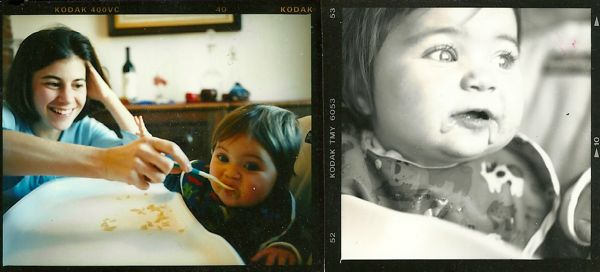
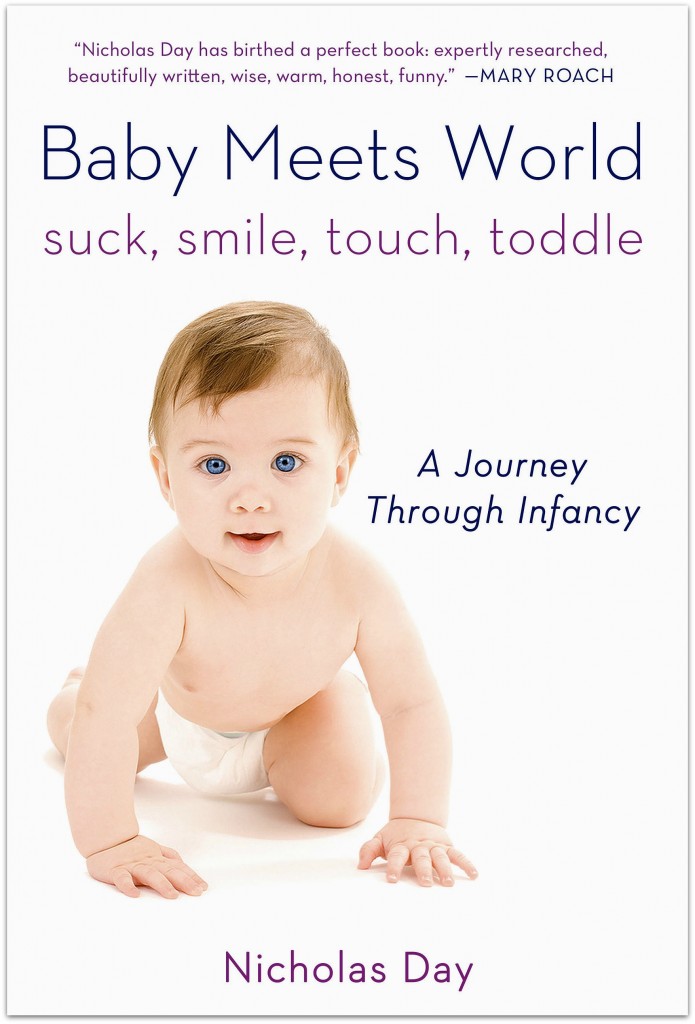

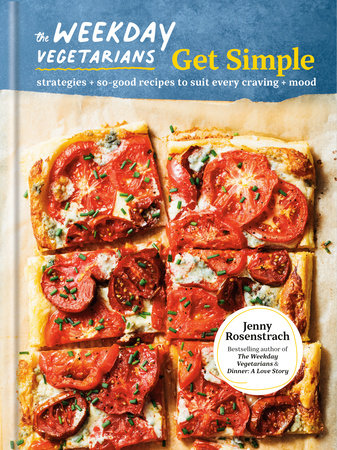
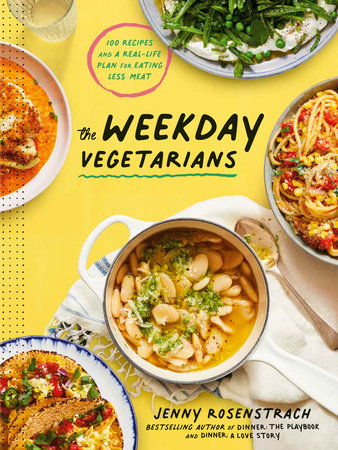
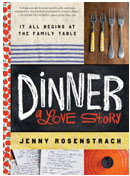
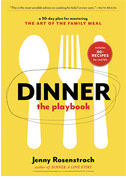

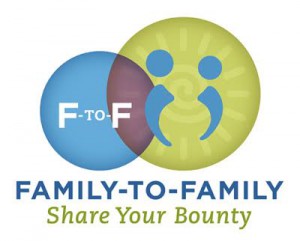
I don’t know if it’s just because I’m paying attention, but I keep seeing this topic come up. I have a 5 year old, 2.5 year old, and a seven month-old. We’ve just started to look into baby-led weaning, since lately dinner time is always eaten in crisis mode.
I loved this post (I bought his book after I read several excerpts on Slate). It still astounds me regularly that baby food is a thing, a thing that people buy at the store and write blog posts about and buy cookbooks for and argue over. I’ve never seen it summarized so well as this: babies eat food. Bravo 🙂 Our experience with our first son was very easy, we did the baby-led weaning thing after reading an article about it in The Guardian (UK). Correlation does not imply causation, but our son is a great eater at age 3!
I am buying this book for my niece who has a one year old who she is afraid to feed a cheerio to. I remember feeling scared to introduce “real” food to my babies (who are 20 and 22 now) but just like everything as soon as you try it you forget that it was every scary. On every level of parenting I need to remember that lesson. Perspective indeed! Thanks Jenny and Nicolas.
My first child, we were so careful about what we fed her and at what time in her life. The second we skipped all cereal with and third, it was all out the window and I don’t remember buying or mushing up food for him as he went straight to regular food. So much easier and less stressful on everyone! And we can have family dinner every night of the week.
My oldest (8) still loves pureed sweet potatoes, though.
As a first time mom of twin boys, I love this post! Both of my boys had acid reflux early on, and one still struggles with texture, and gagging. But, I’m trying to let it all go, and feed them what we eat. Like you, we feed the boys early, and eat later. Most of their meals consist of yogurt, fruit, cheese, and pasta. This gives me courage to try more, and try to eat together!
I was so terrified to feed anything to my daughter that wasn’t miniscule and pureed. And then yrs later my sis in law and another friend were feeding their babies and these kids were eating real actual food. As babies! Eating tomatoes! And pieces of celery! (my nephew would just gnaw on it) My eyes nearly popped out of my head. And I realized that these happy little babies were eating pretty much anything and everything, instead of smearing it all on their heads, like my daughter did, ha. 🙂
Thank you for posting this. Because of using this method (we read the BLW book by Gale Ripley), we are able to use your website as inspiration to have dinner as a family (well actually breakfast) with our nine-month old. We are so happy that we have given our baby “real” food from the start. She happily eats turkey burgers, zucchini, meatballs, Cheerios and whatever else we are eating for the most part. And the best part is she just takes the food from her tray and puts it in her mouth herself. Obviously we watch her to make sure she doesn’t choke, but she is very adept at getting pieces that are too big out of her mouth all by herself. It makes it possible for both my husband and I to also eat while she eats with us. We cut veggies into stick form which makes the perfect handle. This book sounds like a great resource for other families trying to do the same.
I was determined to not be so concerned with what my second child ate. The plan was to give him what we ate. And it worked great until he developed GI issues which may or may not be a food allergy. We spent months backtracking to figure out what was causing it. The big suspects corn, rice, tahini, maybe soy. I don’t feel like how we fed him caused the problem, but if we had been a little more careful to introduce one food at a time over several days, it might have gone easier for us ( even if that food was a complicated one with different ingredients) As it is a year later ( he is 18 months now )we are still figuring things out, and I worry more about what child 2 eats not less. But at least he is eager to be included in dinner now, and when he gets whatever is in the big red pot for dinner he is happy, until its time to throw it on the floor. The allergy advice is only nonsense until you have the kid with a problem, which most of you won’t.
Thanks for the lovely comments, all of you.
Alyson — I cracked up when I read “(well actually breakfast)”
Lee Ann — That’s horrible to hear. I’m so sorry. And you’re right: I don’t have a kid with a problem. But the “allergy advice” really is in flux; the conventional wisdom really has been upended over the last few years. I can only imagine how frustrating all this — do this! no, do that! — must be for parents whose children have allergies. I assume you saw this Jerome Groopman article in the New Yorker, which goes into way more detail: http://jeromegroopman.com/ny-articles/PeanutPuzzle-0207-2011.pdf
My older daughter just refused to eat baby food. When my doctor told us that we could just feed her whatever we were eating, we were thrilled. It meshed much better with our lifestyle. We enjoyed eating dinner as a family from the time our first daughter was pretty little. My husband (are always husbands prone to this bragging?) is always telling people that our daughter was eating salmon and lamb (yes, LAMB!) and cucumber straight out of the garden before she was one. We did typically cut it up pretty small (my paranoia of her choking kicked in from time to time) but otherwise, we feel like we’ve hit the meal time jackpot. Sure, we only “enjoy” dinner for a few minutes but I think this hard work now of eating with a two and a three year old will pay off exponentially when the kids are older. Thanks for sharing the info and I look forward to checking out your book!
I agree with this so much! When my daughter was nursing, I was so chicken to give her anything solid. We got a blender and pureed peaches, peas, and sweet potatoes, and other lovely foods to the point of a disgusting mush. And why were we so surprised she hated them?
Luckily, we figured it out pretty quickly, and she started real food shortly after. She loved it all! Now, she is a healthy happy toddler who eats our meals (sometimes slightly deconstructed) right alongside us. Her favorite? Salmon with tomato and cucumber salad.
Thank you, for this. I feel like feeding a baby has become WAY too overcomplicated.
B pretty much eats what his brother eats. He is in the high chair right now munching on brie cheese, grapes, and garlic naan bread dipped in hummus. He is a mess and he is loving it.
My health visitor gave me some great advice when my first child was born – give him whatever we were eating (before salting), and puree it in the blender. I don’t tend to cook with nuts anyway, and I avoided wheat, shellfish, other common ‘allergens’ before 9 (or 12? can’t remember) months. I did spoon feed all of my 3 kids until the age of about 2 as I hate to see babies and toddlers playing with their food, covered in food, hate cleaning food from the floor and furniture. From about the age of 3-4, they ate with the family, and were expected to clear their plate before leaving the table. I don’t think this old fashioned approach has done them any harm as they are all now good eaters/enthusiastic cooks.
I didn’t know it’s called baby led weaning!! In my version, our son squeaked by on breast milk and snatching handfuls off our plates. We kept trying to get a hang of making or buying baby food and we failed, but he certainly wasn’t starving. His first food was a mango he stole off my plate at 5 months old. He’s still a picky toddler and would argue a few chickpeas WILL hurt him. At least I can put my baby food guilt to rest.
My boys are approaching their teen years and I confess to feeding them bowl after bowl of purees for fear of them choking on anything. I’m so happy to see that there’s a new school of thought out there now….it sounds pretty smart to me.
I totally bought into the Baby led weaning thing, but now I’m not so sure. My daughter is two and not weaning! I admit its a total comfort thing for her to breastfeed, but still she is pretty picky compared to her boy cousins about the same age who love anything and everything and were fed the baby purees and cereal. She is just barely starting to actually try a little dinner. Her staples are eggs, cheese, butter(and I mean nibbling a stick of butter) waffles, sometimes some deli ham, French fries, which she rotates what she likes on different weeks. When we introduced food we usually put what we were having on her highchair tray, and she quickly didn’t want us to feed her by spoon. Perhaps I should have pushed her to be spoon fed lots of different flavors. or perhaps she wasn’t has hungry as her cousins because their moms lost their breastmilk between6-9 months and the started supplementing with formula at 3months.
This looks like a book I should have read years ago!
Missy – how I would love to be able to nibble a stick of butter!
My kids taught me all of this! Neither would eat a thing (other than to nurse) until 9 months of age when they could feed themselves. Puree on a spoon just made them angry. I was a basket case when kid #1 wouldn’t eat baby food. By the time kid #2 did the same thing, I had figured out it really wasn’t a problem. Besides, it really is so much easier to only cook once.
First kid ate baby food until she was 18 months. Second kid barely ever touch baby food. First kid still somewhat a picky eater, second kid will eat anything. First kid not always the healthiest eater, second kid will grab fruit before anything else.
Hmmm…you do the math.
I’m cracking up reading this because I just got a Vita-mix blender and am now making smoothies out of every fruit and vegetable in sight. Baby food for everyone!
Thank you for having Nicholas as a guest post. I’m a big fan of DALS, the book and the blog. But I am in the same stage in my life as Nicholas ( 3.5 year old and an 8 month old) and wondering how I can keep to the family dinner this year.
And yes, I have just started feeding little Davey our food, or at least his brother’s food. Instead of whole peas, I squash them with my hand for David, he loves it! And let’s add, having him feed himself, even for a few minutes, helps out with the family dinner vibe!
Thanks.
I’m all for eating together as a family, and babies eating the same food as adults (albeit minus salt and known allergens), but I think the idea of sitting down to dinner with babies and toddlers (at what time, 5pm? 6pm?) might be a bit unrealistic, and yet another stick for parents to beat themselves with. From my observations, children below the age of 2 lack the necessary coordination and concentration to feed themselves correctly, with the result that most of the food ends up on them or on the furniture/floor. It’s not cute, it’s a waste of food and the time/effort spent preparing it, and I don’t think that playing with food or getting messy at the dinner table helps to educate or socialise infants/toddlers. Yes, kids should be included at the family table, but there is a time for everything. Perhaps around the age of 4, preferably when they are able to sit still and are ready to learn about mealtime etiquette, by which I mean not disrupting others’ enjoyment of the meal, and having the courtesy to try a little of everything without any drama.
I actually couldn’t disagree more that dinner time isn’t doable for small children. We have had a family dinner since my daughter was born. She was more than capable and thrived under it. I don’t believe children magically learn this later on in life. Every child is different but certainly a child below the age of two has these skills. She stole a banana out of my hands and ate it at 4.5 months. She was eating ribs before six months. She has been using linen napkins, real dishes and asks to be excused since well before 18 mos. We did baby led weaning and I would never go back. She was never fed pureed food or fed by spoon. She eats copious amounts of fish, veg and all things we do. We don’t have any more mess or wastage than any other baby learning to eat. Exlcuding children from the dinner table is really a very uniquely North American thing.
@KKRvF “Exlcuding children from the dinner table is really a very uniquely North American thing.”
Actually, children in many cultures are spoon fed separately until they have the skills to join in family mealtimes. What IS typically North American is the idea that EVERYTHING must be child-led. I’m not against having babies and toddlers at the table, just wondering if it doesn’t merely replace one set of problems (pureeing food, spending time spoon feeding) with another (playing with food, child being centre of attention during mealtimes, time spent cleaning up). Personally, I don’t think a very early introduction to the family table has any bearing on being a good eater, but every child is different so do what suits your family, that’s all.
I find this discussion fascinating! Like many of the posters, I was terrified to start solid foods “too early” with my first. Then, I met a mom who fed her one year old anything. And he really wanted the food, so he figured it out. When my son came along, we tried that, and he loved it. He eats everything we eat, and he’s upset if he thinks he doesn’t have the same food. Now, him eating with the family is never a clean experience, but the social aspect is absolutely worth it. Perhaps I’m more focused on that because I work outside the home and this is the only time the entire family is in one place at the same time each day, but it wouldn’t be the same meal without our messy 19 month old. I am hopeful that enjoying texture, spice and flavor early on will help him to avoid the picky phase that so many young kids (my oldest included) seem to go through.
Zelda, I completely agree that it seems odd that everything must be child led in North America – that is actually my point and what we emulate at home. I think that was Nicholas’ point as well: that perhaps we could back off making such a huge deal about feeding babies in a seperate ritual. Our child is not the centre of attention and we don’t focus the ritual around her, she is merely part of it. In my personal experience living abroad which I did for an extended time, kids were included and expected to participate but not dominate. My persusal of the rash of pro-French parenting books seems to suport this idea as well (for whatever they are worth).
My first solid meal as a baby was… beef. Pan seared, olive oil and garlic beef. My mom cut it into stripes so I could grab it with my hands. I was six months old, so I don’t remember any of that, but she says that I chew that stuff, sucked all the juices and left the dry fibres on the table.
My brother’s first meal was also beef, but he ate the entire stuff.
And then a whole banana.
And some breast milk for dessert.
I’m glad that this book has confirmed that babies *do* eat food! I was starting to wonder, as our 8-year still hasn’t yet got the hang of it 😉 Waiting for the day!!
xoxo PARIS BEE kids blog
Our son, now 11.5 months, has never had a puree. We followed the Baby Led Weaning philosophy, and he loves all kinds of foods (especially spicy stuff!). He tried jerk chicken and curried goat a month ago when we were on vacation and loved them.
I think the new AAP advice applies only to families who don’t have a history of food allergies. We’ll be waiting to introduce some of the major allergens, especially nuts, to our baby due in August since his older brother has egg and nut allergies.
@KKRvF: Thanks for sharing your own experiences, it’s a fascinating subject. As parents we tend to suffer from a case of selective memory loss, glossing over the bits we don’t want to remember. In my case, that involves the hours spent spoon feeding each child, pureeing vats of veg and decanting into individual servings, even cooking separate, easily digestible meals (until the age of 3, at least). As for children ‘magically’ learning the skills to participate in family meals, I truly don’t remember when or how this happened – over 17 years ago, in the case of my eldest! But then, for all those babies let loose at the communal table, at what point do they learn that it’s not OK to grab food with hands, to touch food on other diners’ plate, to sit quietly until the meal is over for everyone, not to crawl onto the table, upsetting water jug and dishes (I have seen this!)? I think that feeding our kids is about more than nutrition, it’s also an education. I’m sure others will argue differently, but in my view there are no educative benefits to be had in skipping a year or two, they all get there in the end.
I bring you great news from the future. My 27-year-old daughter emailed a link to this post thanking me and my husband for always sharing sit-down meals and real food with her and her little sister. It is one of the most long-lasting and beneficial activities and parent and child can share.
I’ m surprised to read this. We feed babies food and dinner from 4-5 months of age, at the table, during family dinners. I have a 5 months old baby who is eating a lot of different food, he is happy, growing at a normal speed and sleeping all night. He sat with us during dinner from the beginning, even when he just ate milk. Dinner is holy ground 🙂
Hanne M., Norway
Nothing beats a family dinner in my opinion. I love preparing dinner with my boys (15 months and 4.5 years and yes I let them both help in the kitchen) and then sitting down with them to enjoy it. The only thing that precludes my husband from joining in too on many ocassions is the fact he is home from work too late during the week. I cook single meals and we all eat the same thing. My boys started on purees (homemade) at 4-5 months but by six months were on textured solids and finger foods and eating pretty much whatever was on the menu (I cooked salt free). Right from the start they ate when we ate and they ate where we ate: at the table. There are no baby high chairs in this house, we have Tripp Trapps which allow them to sit up at the table just like us. The’ll try anything and everything, have their likes and dislikes but the dislikes are few and far between. We have taught them good behaviour and good manners from the off and I will happily have them sit with us when entertaining, when eating out, when visiting friends. Increasing the number of settings at the table with each new arrival was never something daunting for me, it just meant there were more of us to enjoy meal times together and that I might have a little more clean-up to do when meal time was over. In my view the kitchen is the heart of the home, and round the kitchen table is where the some of the best family memories are made.